Nvidia GeForce RTX 2070
The Nvidia GeForce RTX 2070 splits the difference between value and performance in the Turing series of graphics cards. While the GeForce RTX 2080 and RTX 2080 Ti deliver outstanding performance, they’re out of the price range for most gamers. The RTX 2070 knocks off a little of that price without sacrificing too much of its ray-tracing capabilities.
The XX70 cards have always stood in that middle ground regardless of generation and can still give you quite a bit of performance. And having tested the GPU, we know that the Nvidia GeForce RTX 2070 continues that tradition. Overclockers will especially be able to squeeze some extra horsepower out of this Turing GPU.
Since the release of both AMD Navi and Nvidia’s Super RTX GPUs (like the Nvidia GeForce RTX 2070 Super), the Nvidia GeForce RTX 2070 has only come down in price (though it has been discontinued). In fact, the retailers still stocking the card will probably knock the price down even more with the likely unveiling of the Nvidia GeForce RTX 3000 line at its September 1 event.

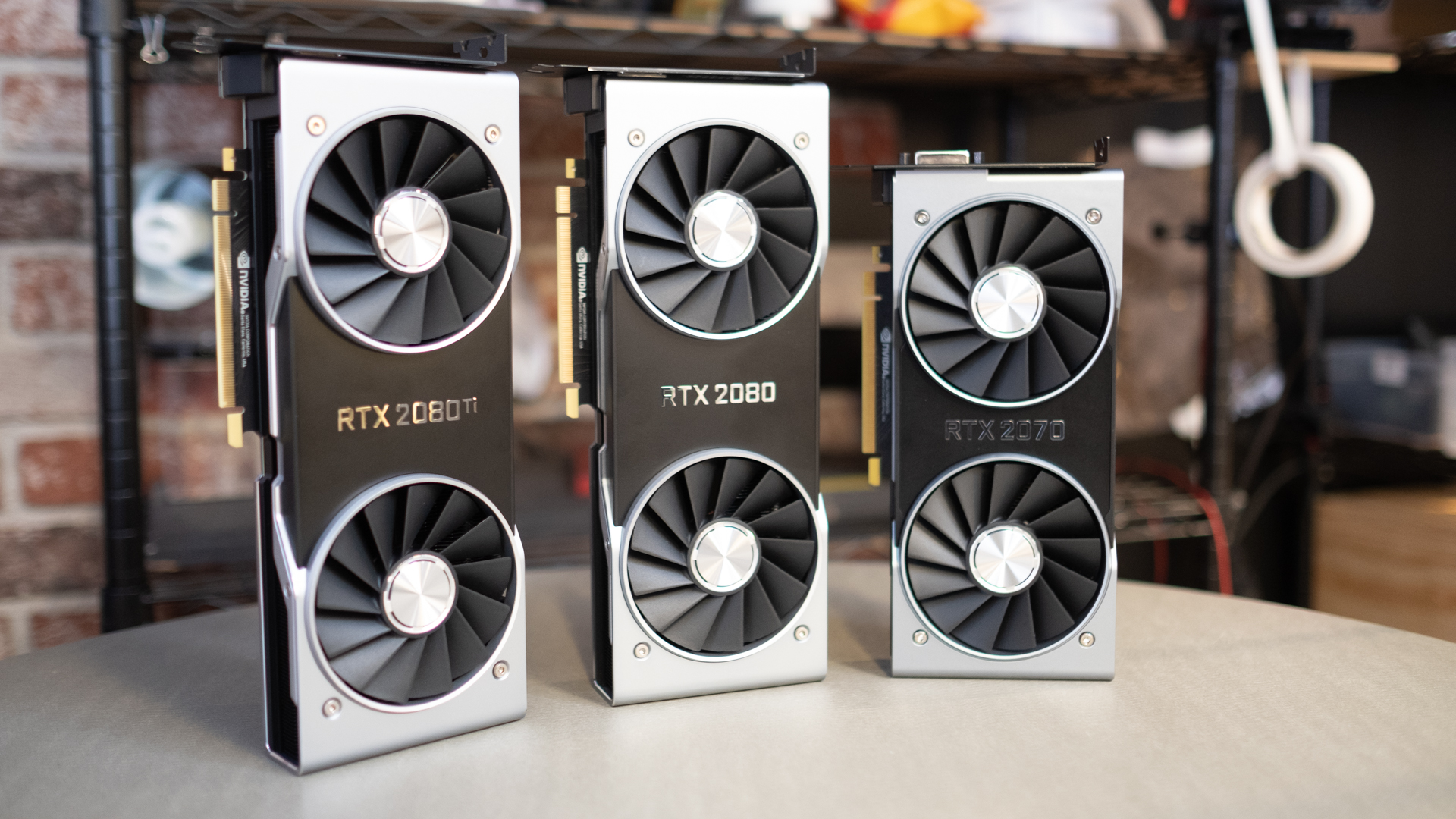
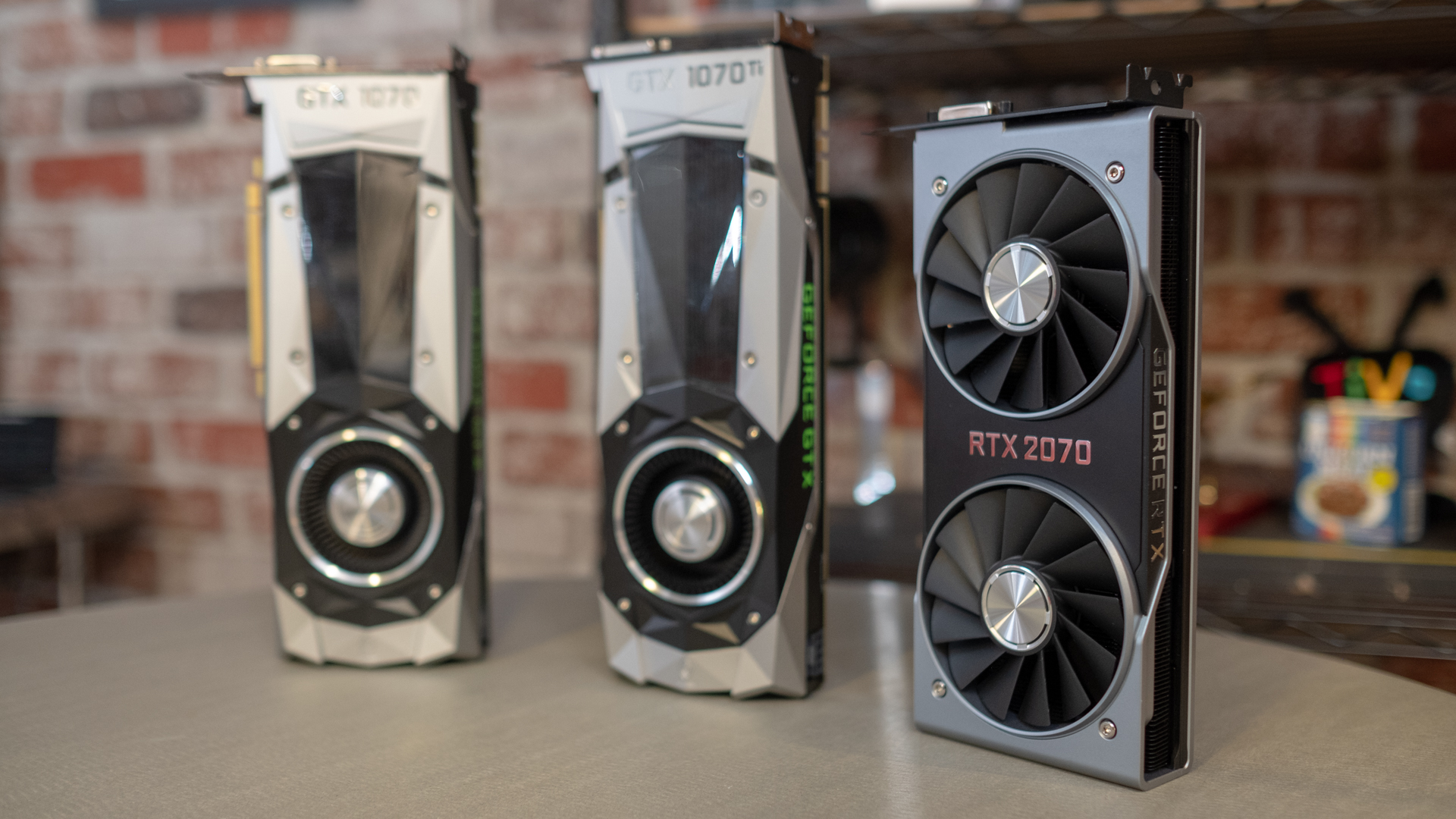
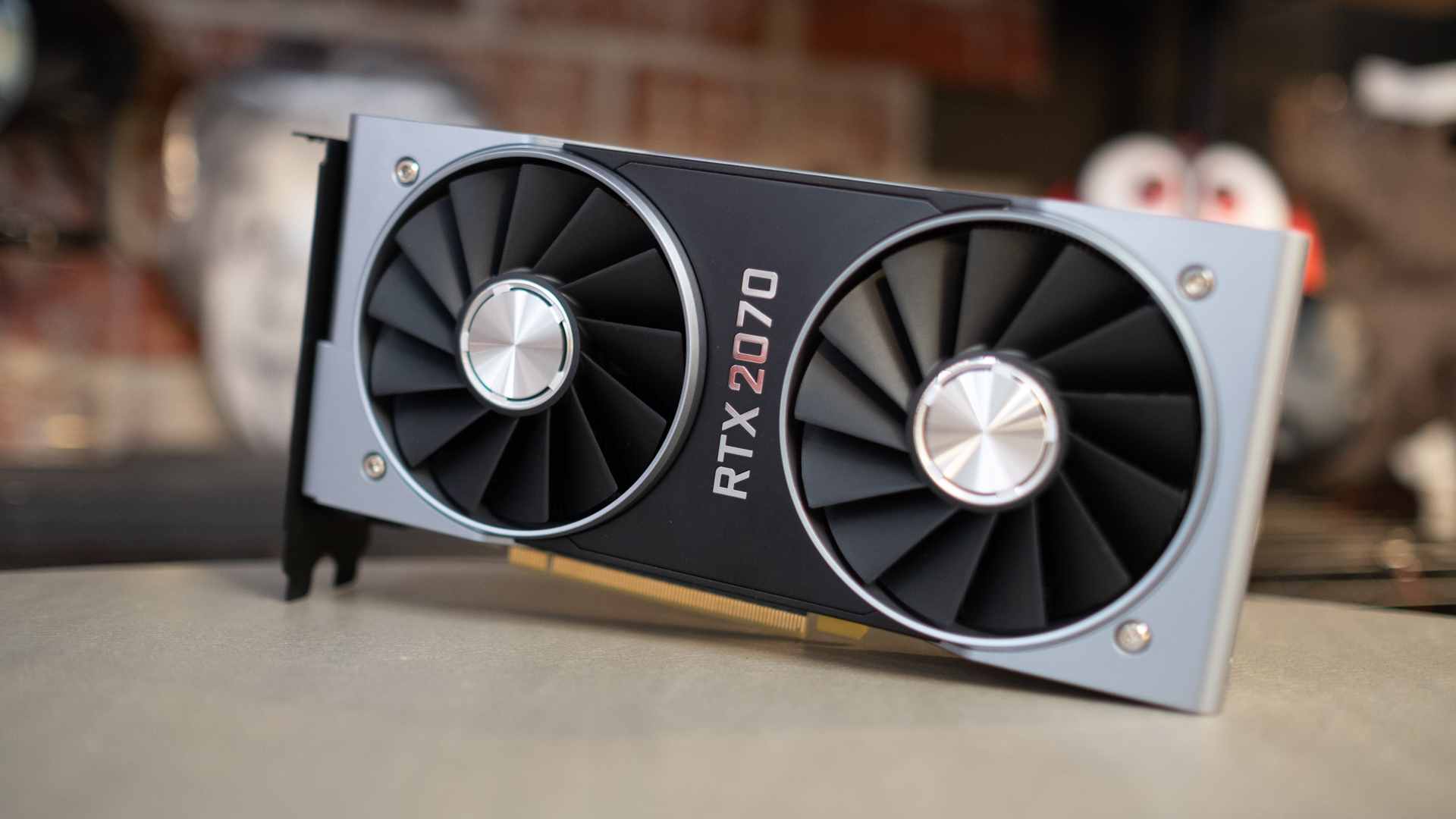
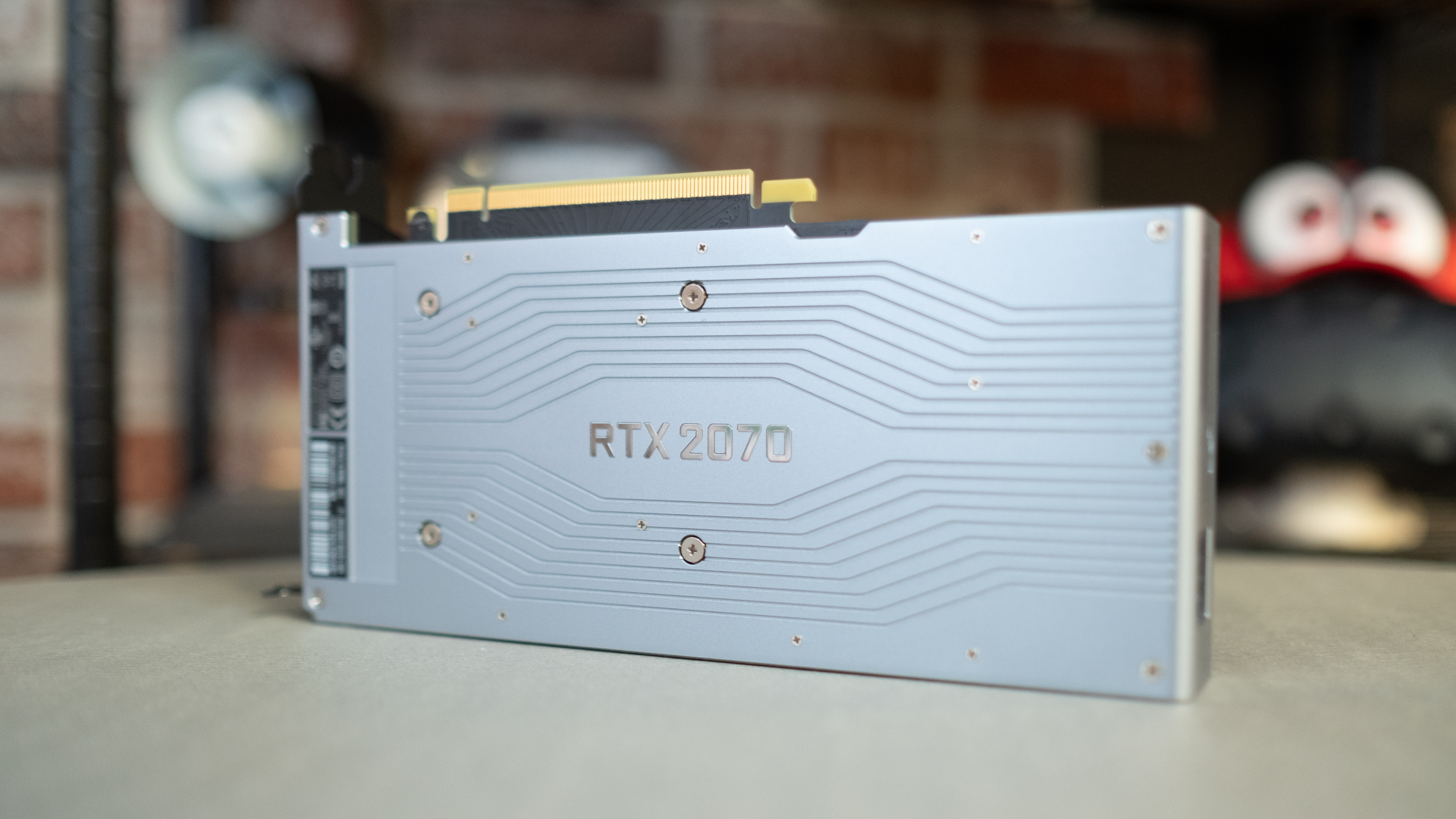
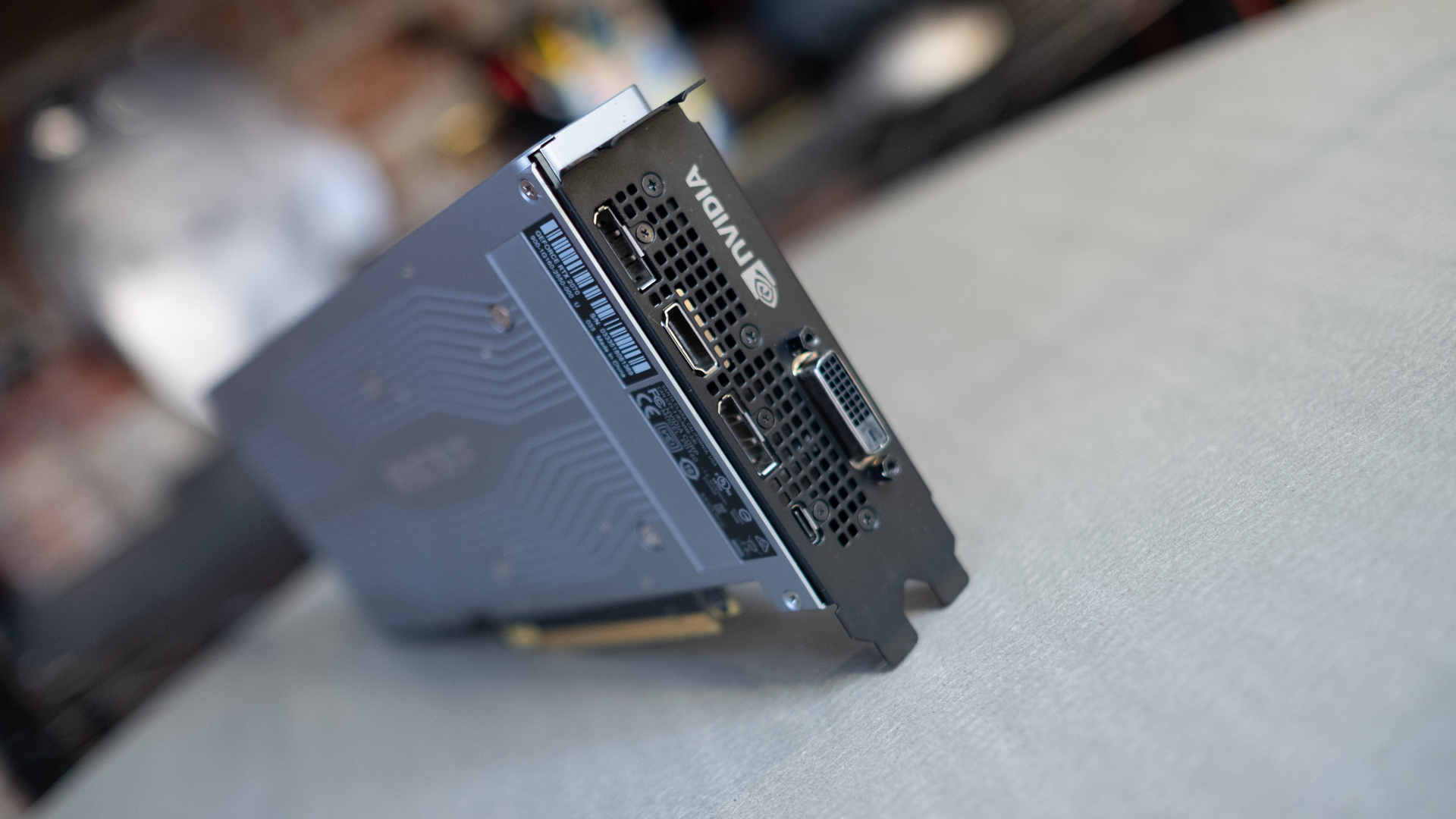
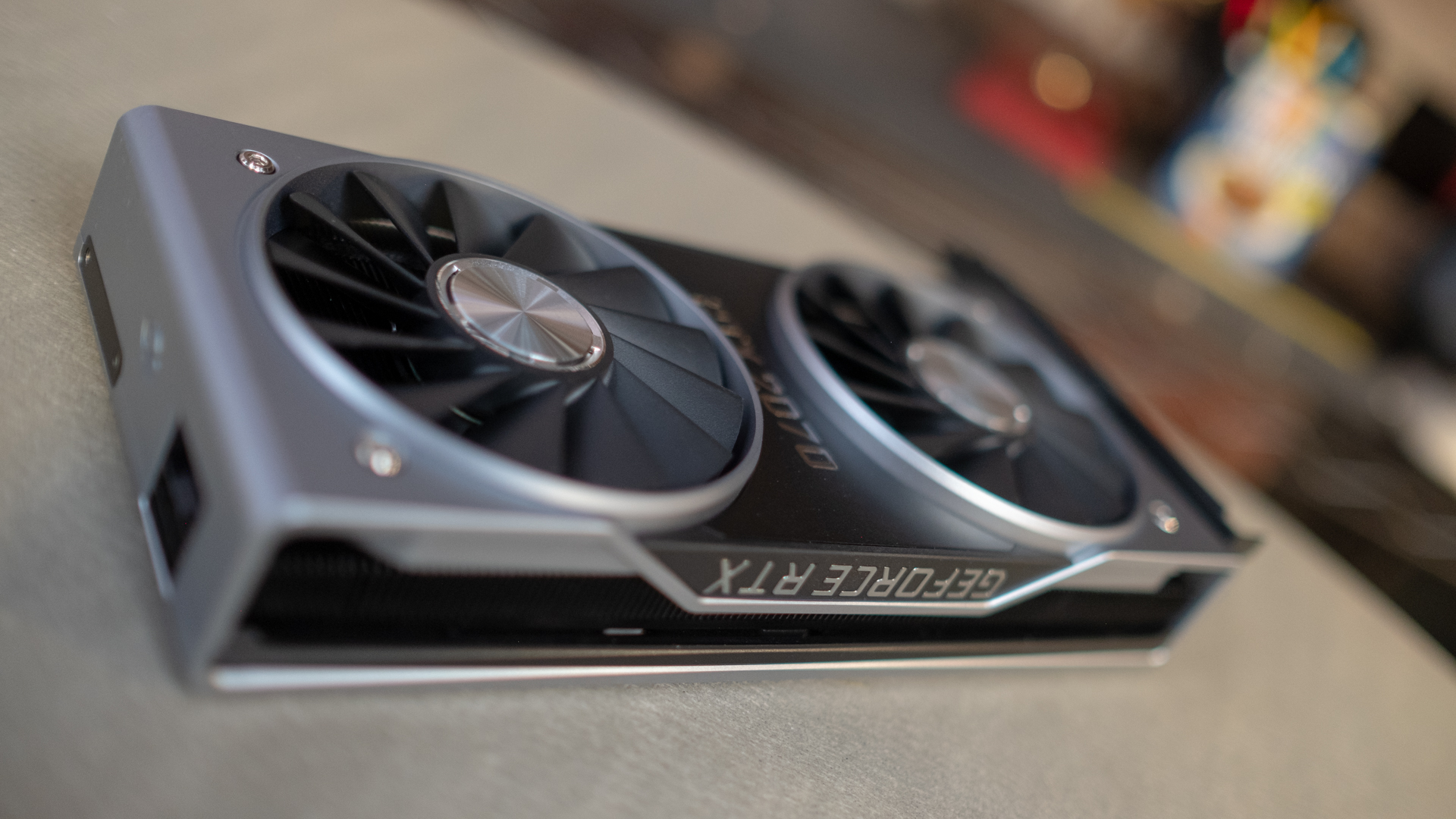
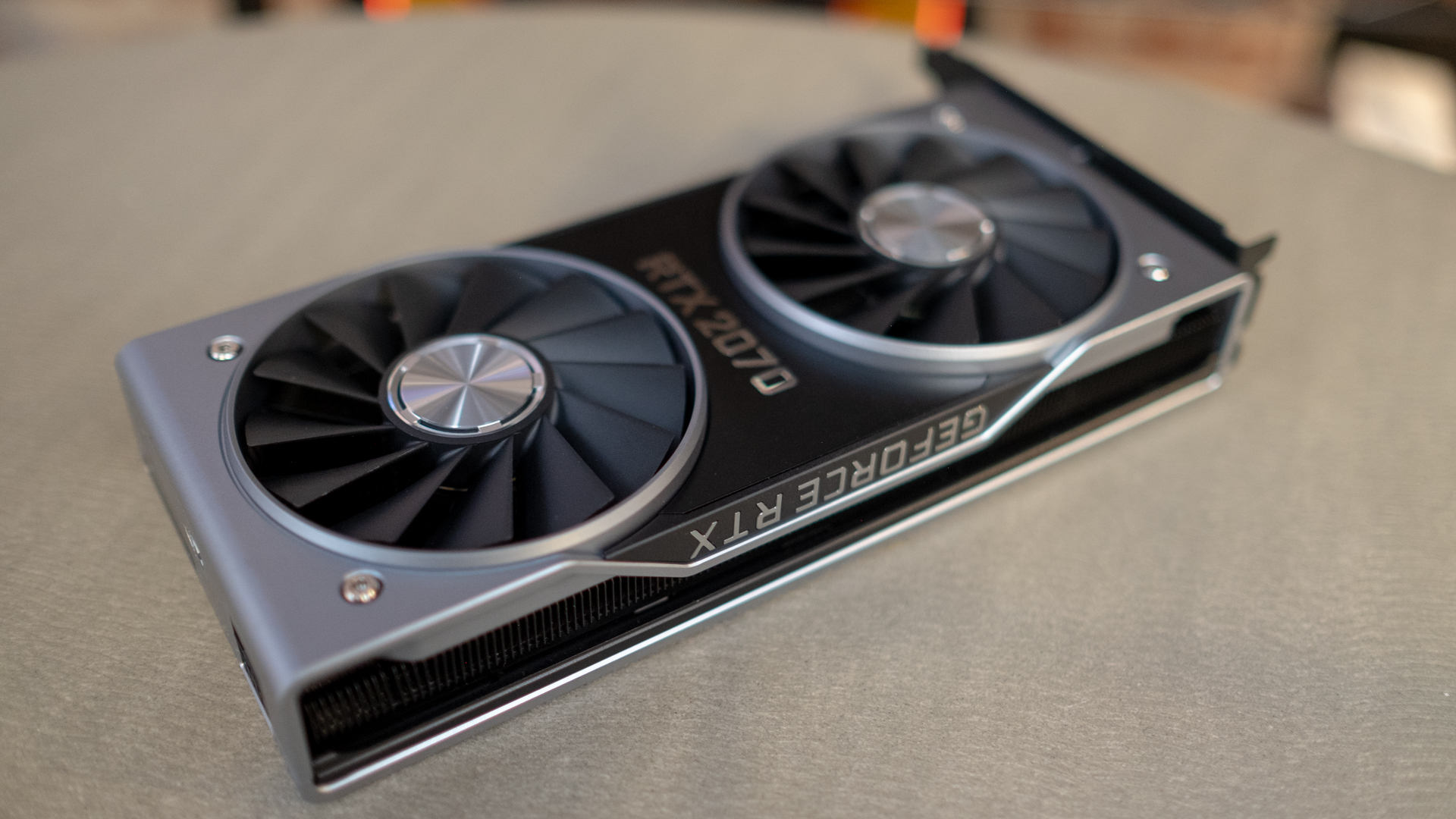
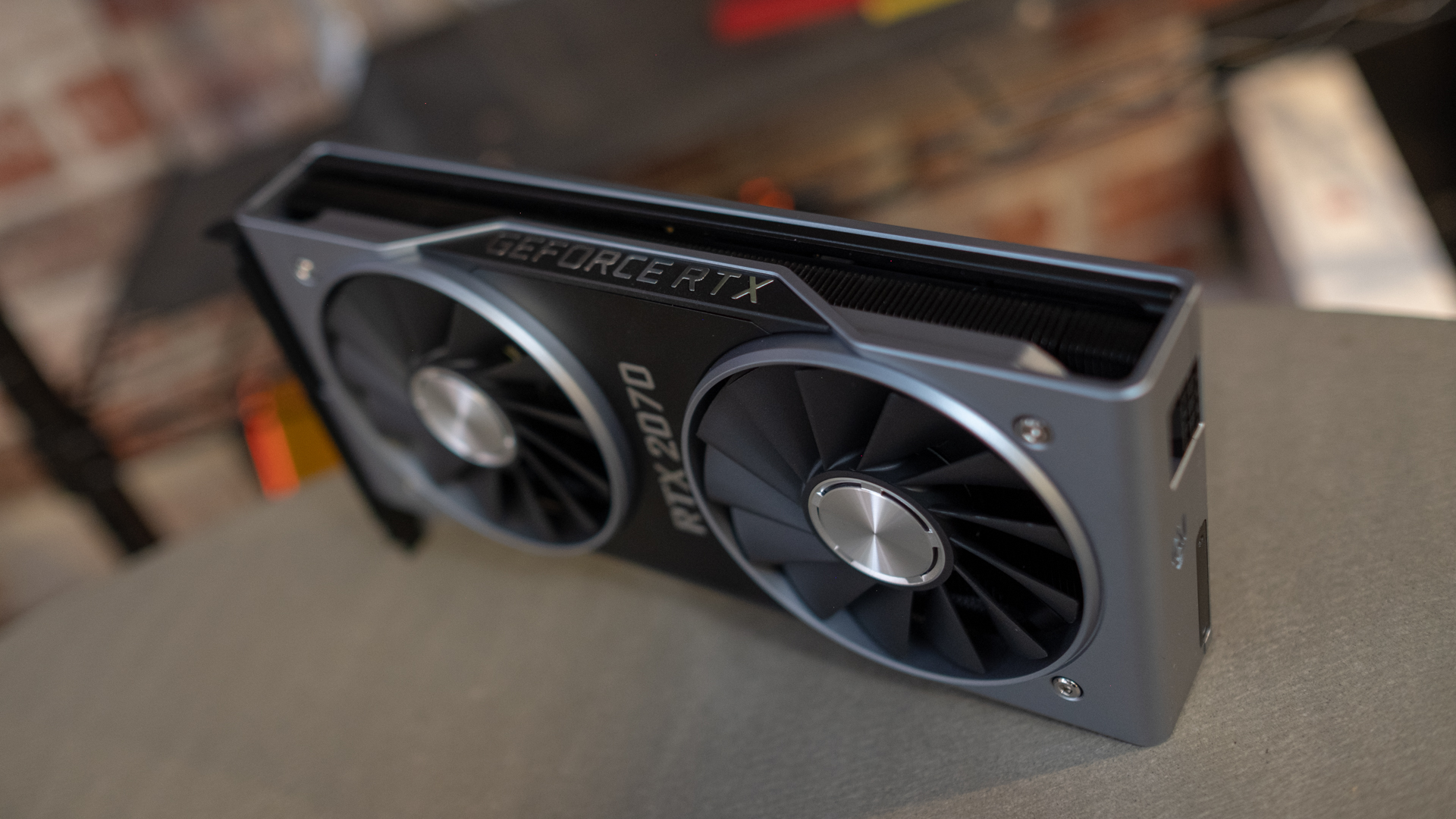
Price and availability
Much like the other Nvidia Turing graphics cards, the Nvidia RTX 2070 is much more expensive than the GTX 1070. The Nvidia GeForce RTX 2070 Founders Edition, costs a whopping $529 (about £420, AU$760).
Thankfully, you’ll find many third-party Nvidia RTX 2070 cards at a more palatable $499 (about £380, AU$690) price. Both of which are available to purchase now in the US and UK.
For reference, the Founders Edition version of the Nvidia GeForce GTX 1070 Ti and Nvidia Geforce GTX 1070 originally came priced at $449 (£419, AU$759) and $399 (£379, AU$699), respectively. Meanwhile, AMD’s closest equivalent cards are the $399 (about 320, AU$570) Radeon RX Vega 64 and $298 (about £240, AU$430) Radeon RX Vega 56.
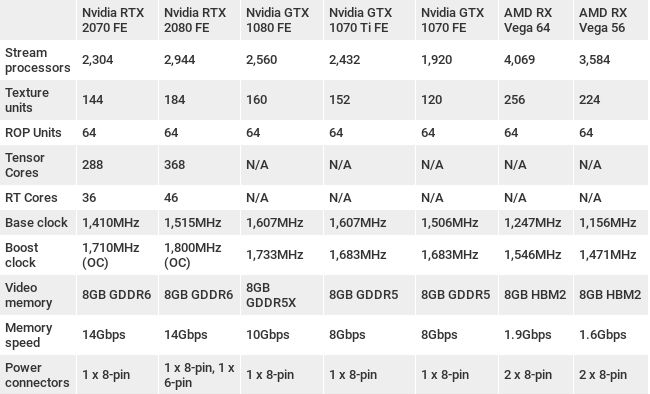
Features and chipset
The Nvidia RTX 2070 not only looks exciting because it’s the cheapest RTX graphics card you can buy currently. It also packs an impressive transistor count. Spec for spec, this GPU leapfrogs its direct predecessor, the GeForce GTX 1070, by boasting 20% more CUDA cores and 6Gbps faster GDDR6 video memory.
In comparison to the GeForce GTX 1070 Ti and GTX 1080, Nvidia’s new mid-range graphics card has a lower stream processor and texture unit count.
It also features significantly noticeably fewer Ray Tracing (RT) cores and AI-powered Tensor cores compared to the rest of the Nvidia Turing lineup. However, without any real-world ray tracing or deep learning super-sampling (DLSS) benchmarks at the time of the review, we didn’t yet know how well this GPU will handle Nvidia’s latest graphics technologies.
Another letdown is that the Nvidia RTX 2070 doesn’t support pairing multiple GPUs through SLI. Although Nvidia introduced a much higher bandwidth NVLink Bridge connector with Turing, the RTX 2070 doesn’t feature this new connector at all. If you’re looking to do a multi-GPU setup, you’ll have to plunk down more money on a higher-end graphics card from Nvidia.
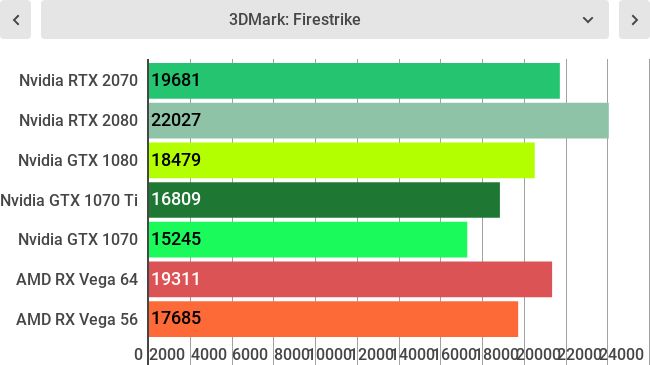
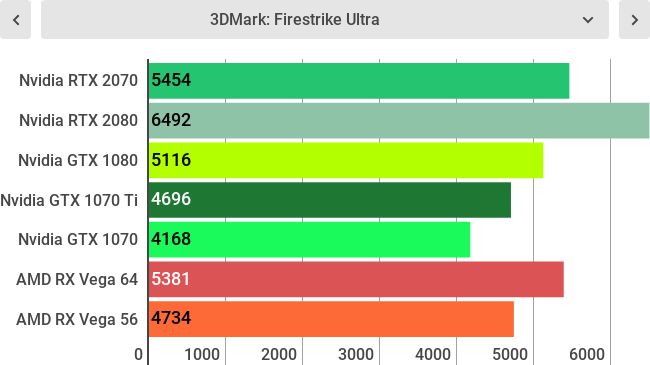
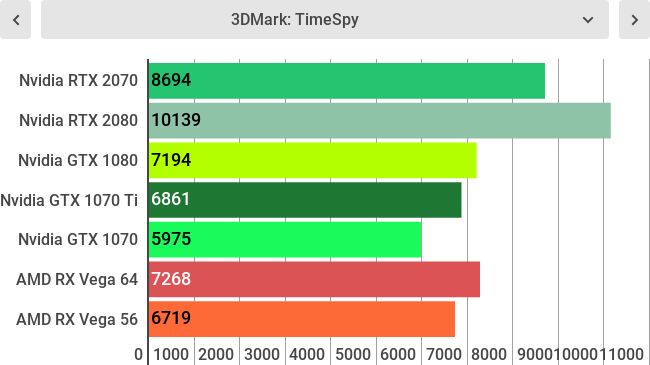
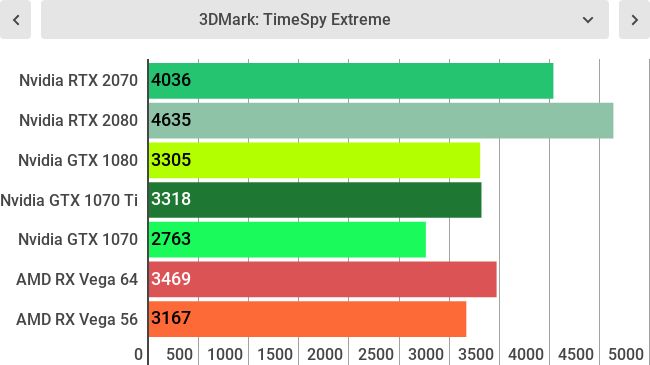
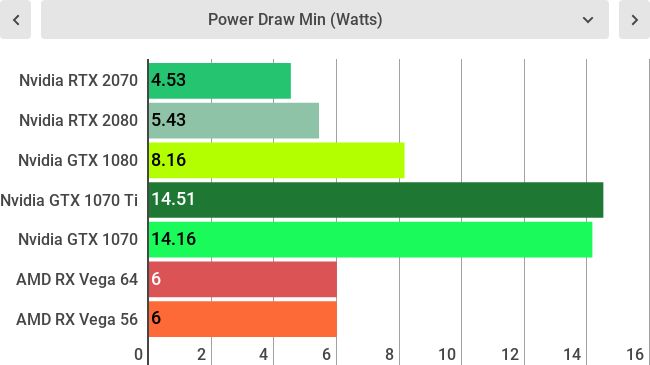
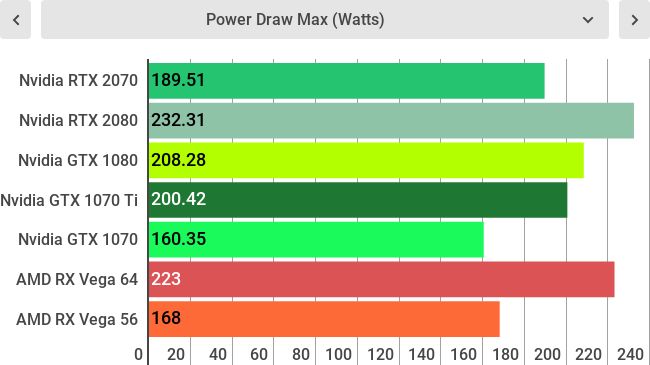
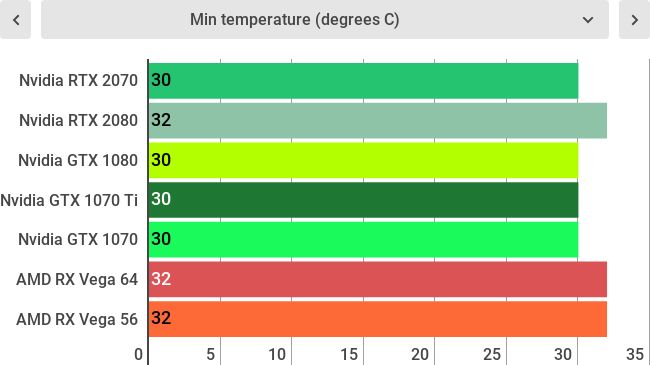
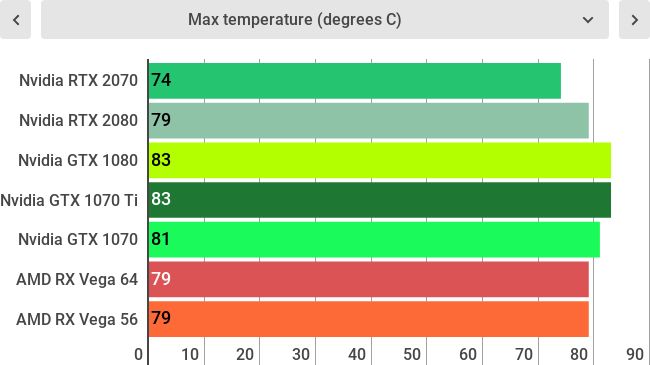
Test system specs
CPU: 3.7Ghz Intel Core i7-8700K (hexa-core, 12MB cache, up to 4.7GHz)
RAM: 32GB Vengeance LED DDR4 (3,200MHz)
Motherboard: Asus ROG Strix Z370-E Gaming
Power Supply: Corsiar RM850x
Storage: 512GB Samsung 960 Pro M.2 SSD (NVMe PCIe 3.0 x4)
Cooling: Thermaltake Floe Riing 360 TT Premium Edition
Case: Corsair Crystal Series 570X RGB
Operating system: Windows 10
Performance
Nvidia’s latest graphics cards have featured surprising performance in 4K gaming, but we weren’t expecting the Nvidia RTX 2070 to deliver here.
With our GeForce RTX 2070 test bench, we were able to play Strange Brigade and Forza Horizon 4 at a respectable 70 fps to 60 fps, respectively. Destiny 2 was the only game that really gave us any trouble, but frame rates remained in a playable 40 to 70 fps range.
Playing all the same titles at QHD (2,560 x 1,440) resolution kept frame rates hovering around 120fps. Lastly, FHD gaming with the RTX 2070 varied wildly between 120 to 220fps.
In our synthetic benchmarks, the Nvidia RTX 2070 blows past the GeForce GTX 1070, GTX 1070 TI and GTX 1080. Amazingly, the only thing to give Nvidia’s new mid-range GPU some competition – aside from the GeForce RTX 2080 – is the AMD Radeon Vega RX 64.
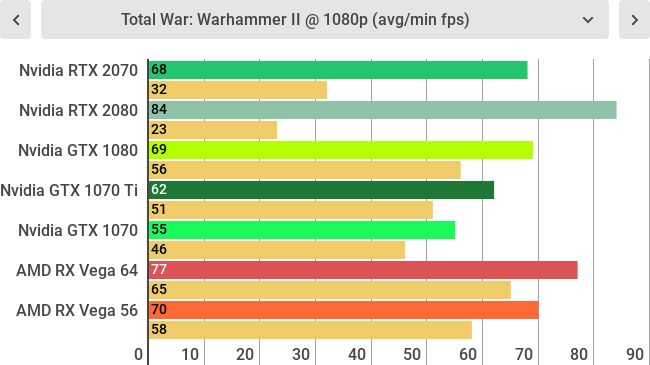
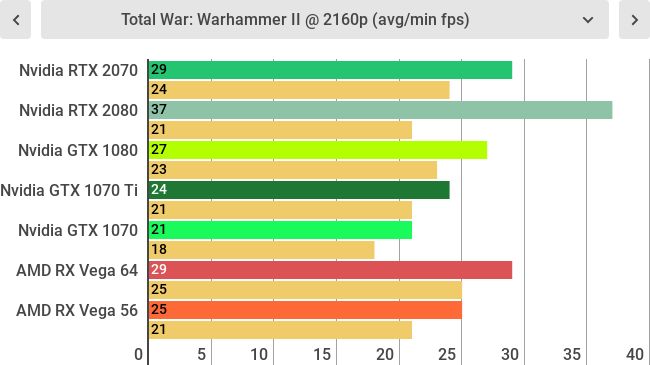
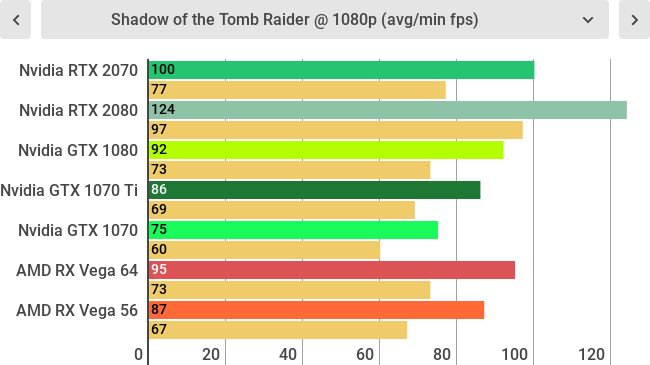
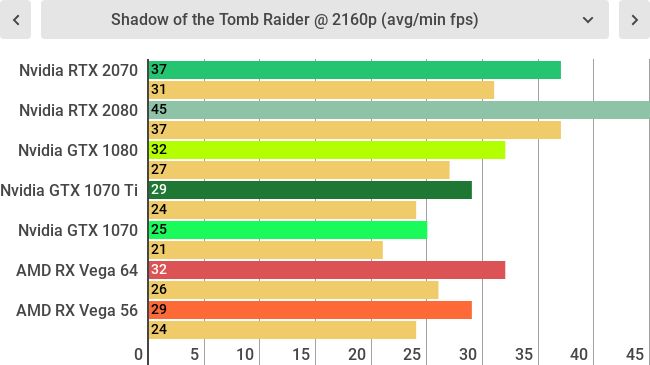
Unfortunately, gaming performance wasn’t quite as impressive. Even if the Nvidia RTX 2070 consistently delivers double digit frame rate increases over the GTX 1070 and GTX 1070 Ti, any other GPU above those – including the RX Vega 64 and Vega 56 – produce almost identical scores.
This is all a stark difference from the Nvidia GeForce RTX 2080 Ti and RTX 2080 that delivered such dramatic increases in performance to beat the Nvidia Titan XP. Both of Nvidia’s high-end Turing parts were desirable simply for being the most powerful GPUs.

Final verdict
The Nvidia RTX 2070 is an unquestionably impressive graphics card that puts 4K gaming within reach of a mid-range graphics cards. However, with a $499 (about £380, AU$690) price tag, it’s hard to call this GPU affordable, especially with this particular model we reviewed costing an even higher $599 (£569, AU$899) premium. The good news is that once the AMD Navi and Nvidia Super RTX hit the streets, these cards should drop in price.
Whether it’s a justifiable upgrade also depends on what graphics card you’re moving up from. Looking at all of our data, users with a Nvidia 1070 Ti or better won’t see a remarkable increase in frame rates after paying more for this GPU. At the same time, those holding onto AMD Vega graphics cards won’t have a reason to jump teams yet.
And once again, ray tracing and DLSS are the only unique features that the Nvidia RTX 2070 offers. If anything, there are more reasons to hold out on buying the Nvidia GeForce RTX 2070 for now.
First reviewed October 2018
Image credit: TechRadar
Comments
Post a Comment